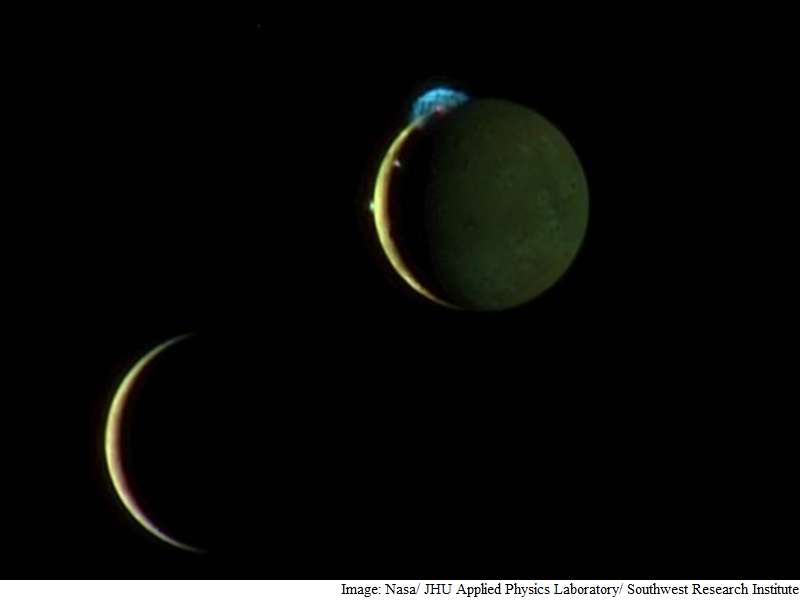
Tides flowing in a sub-surface ocean of molten rock or magma could explain why Jupiter’s moon appears to have its volcanoes in the “wrong” place, Nasa research reveals.
It implies that oceans beneath the crusts of tidally stressed moons may be more common and last longer than expected.
The phenomenon applies to oceans made from either magma or water, potentially increasing the odds for life elsewhere in the universe.
Io is the most volcanically active world in the solar system, with hundreds of erupting volcanoes blasting fountains of lava up to about 400 kms high.
“This is the first time the amount and distribution of heat produced by fluid tides in a subterranean magma ocean on Io has been studied in detail,” said Robert Tyler from the University of Maryland-College Park and Nasa’s Goddard Space Flight Center in Greenbelt, Maryland.
“We found that the pattern of tidal heating predicted by our fluid-tide model is able to produce the surface heat patterns that are actually observed on Io,” he added.
The intense geological activity at Io is the result of heat produced by a gravitational tug-of-war between Jupiter’s massive gravity and other smaller but precisely timed pulls from Europa, a neighbouring moon that orbits further from Jupiter.
Io orbits faster, completing two orbits every time Europa finishes one.
This regular timing means that Io feels the strongest gravitational pull from its neighbour in the same orbital location, which distorts Io’s orbit into an oval shape.
The new work also has implications for the search for extraterrestrial life.
Scientists think life might originate in such oceans if they have other key ingredients thought to be necessary, such as chemically available energy sources and raw materials.
The new work suggests that such subsurface oceans, whether composed of water or of any other liquid, will be more common and last longer than expected, both within our solar system and beyond.
[“source-gadgets.ndtv”]









